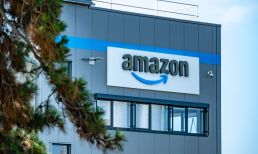APPRL, the newest member of the Klarna family, is an end-to-end influencer marketing software meant to help eCommerce brands connect with content creators in order to meet consumers where they are. A Klarna spokesman told PYMNTS that he could not disclose the terms of the acquisition.
Sebastian Siemiatkowski, CEO of Klarna, said that social shopping is becoming “a core element of the retail experience,” and that he believes Klarna’s position as both a payments and shopping platform at the center of the shopping ecosystem “is instrumental in connecting retailers to both consumers and content creators.”
“By adding APPRL to Klarna’s existing retailer support expertise, we see a huge opportunity to create an enriching and informative shopping experience for consumers everywhere while accelerating retailer growth,” Siemiatkowski added.
This is the second social commerce acquisition Klarna has made this month. The payments and shopping platform also bought social shopping startup HERO in mid-July to give retailers the ability to create shoppable content from brick-and-mortar locations.
Retail Support
Advertisement: Scroll to Continue
Klarna has been on a hot streak in recent months, raising $1 billion in March from new and existing ventures and $639 million in venture funding last month to expand internationally and further capture retail customers.
Siemiatkowski said in March that the new funding gives his company “additional firepower” that can be tapped for possible mergers and acquisitions of startups that don’t have the same reach as Klarna. One particular area of focus for the company has been retail support services, which include a Comparison Shopping Service (CSS), an artificial intelligence (AI)-driven styling platform, and HERO, which Klarna said will all work together to help consumers make informed purchasing decisions.
With APPRL, Klarna’s marketing services now also allow retailers to connect directly to content creators to create social shopping content and track campaign results through Klarna.
Martin Landén, CEO of APPRL, said that as retailers have continued to embrace influencer marketing as an avenue for growth, the company has seen “an exponential increase in demand,” and that he’s excited to join Klarna. “With APPRL’s platform together with Klarna’s scale, incredible talent and portfolio of marketing services, we will be able to offer retailers an end-to-end influencer and performance marketing solution that they won’t be able to find anywhere else,” Landén said.
As of its most recent funding round, Klarna is valued at $45.6 billion.
Growing Demand
Social commerce is expected to account for $84 billion of U.S. retail sales by 2024, with 48 percent of millennials and Generation Z consumers already having purchased products through social channels. By next year, 28 percent of the entire U.S. population is expected to shop across social channels.
U.S. social commerce sales, however, lag far behind those in China. According to eMarketer, retail social commerce sales in the U.S. will reach nearly $37 billion this year, or just $11 per capita. In China, where the trend has already caught on, sales will surpass $351 billion, or $251 per capita.
Klarna is far from the only platform looking at social commerce as a potential gold mine for growth. Last week, Verishop partnered with Snapchat to launch a social commerce experience within the image-sharing app, and earlier this year, Facebook expanded its Shops to Marketplace and WhatsApp.
Additionally, TikTok is planning several months of workshops to help small businesses utilize the video-sharing platform to grow sales. According to a survey fielded by TikTok, 49 percent of users have made a purchase directly from the app, and 39 percent said that TikTok videos are most likely to influence purchases, second only to friends and family.




